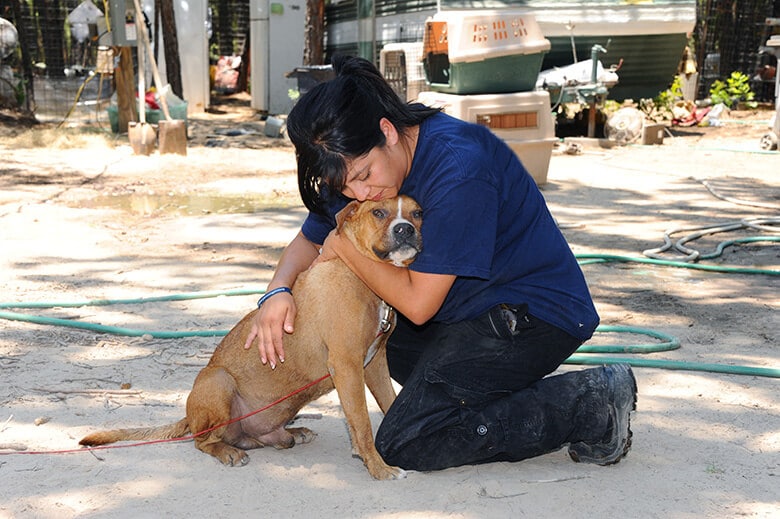In the ever-evolving realm of animal welfare, the position of an animal cruelty investigator stands as a pivotal force against maleficence. These unsung heroes combat injustices faced by our voiceless companions. Understanding the intricacies of this profession is paramount for those passionate about safeguarding animal rights and illuminating the dark corners of cruelty. So, what does it take to become an animal cruelty investigator?
Understanding the Role
To embark on the path of an animal cruelty investigator, it’s essential to grasp the dynamic nature of the role. An investigator performs a crucial function in the enforcement of animal protection laws. This involves delving into allegations of mistreatment, neglect, or abuse, gathering compelling evidence, and collaborating with law enforcement and legal entities to ensure perpetrators are brought to justice. Each case unravels a narrative, requiring a meticulous balance of empathy and tenacity.
Educational Foundations
The voyage typically begins with a solid educational foundation. Although a specific degree is not universally mandated, aspiring investigators often benefit from degrees in fields such as veterinary sciences, criminology, or animal behavior. Such educational backgrounds provide a broader understanding of animal welfare and the science behind human-animal interactions.
Courses in criminal justice and forensic science can be incredibly advantageous. Understanding the legal system and forensic methodologies enables investigators to navigate complex cases effectively. Workshops on animal handling and behavior can also enhance one’s capability to assess the physical and psychological conditions of animals under investigation.
Essential Skills and Attributes
As you traverse this field, several essential skills come into play. Strong observational skills are paramount. An investigator must be able to notice nuances in behavior or physical condition that might indicate abuse. Communication is equally critical; the ability to interview witnesses and coercively present findings can make or break a case.
Furthermore, an investigator must embody unwavering perseverance. The journey can be fraught with challenges, including bureaucratic hurdles and emotional strain. An empathetic disposition helps in handling sensitive scenarios, forging connections with community members, and providing victims with the support they deserve.
Technical proficiencies cannot be overlooked. Familiarity with photographic documentation, evidence collection, and report writing is essential. An investigator’s ability to articulate findings in a clear, compelling manner can foster legal action and public awareness.
Legal Frameworks
A thorough understanding of local and national laws concerning animal welfare is indispensable. Each state or country might have varying statutes. Familiarize yourself with the Animal Welfare Act and other pertinent legislation. Knowledge of these laws not only guides the investigation process but also shapes advocacy efforts and promotes a culture of awareness within the community.
Additionally, recognizing the importance of accountability in animal cruelty cases helps to cultivate resilience in the fight against systemic issues. This knowledge offers a substantial backbone to the investigative process, empowering individuals to act with authority and purpose.
Gaining Experience
Experience in related fields augments one’s qualifications. Volunteering at animal shelters or rescues introduces individuals to various animal welfare situations while fostering invaluable hands-on experience. Internships with law enforcement agencies or animal control provide glimpses into the investigative process firsthand, showcasing the intersection of law enforcement and animal welfare.
Networking is crucial in the animal welfare community. Engaging with seasoned professionals fosters mentorship opportunities and facilitates a deeper understanding of the field’s realities. Conferences and workshops offer platforms for learning and sharing best practices while highlighting contemporary issues in animal cruelty prevention.
Making a Difference through Advocacy
As an investigator, advocacy extends beyond individual cases. It involves a commitment to raising awareness about animal welfare issues and advocating for policy changes. Conducting community outreach programs helps educate the public about animal rights and fosters a sense of collective responsibility towards all living beings. Collaborating with non-profits can amplify outreach efforts, leveraging resources to create broader impact.
Utilizing modern technology, such as social media platforms, is a pivotal facet of advocacy. Engaging narratives and sharing successful case stories can galvanize community support and galvanize action. This connectivity helps enforce a paradigm shift in public perception, forging a culture that views animal cruelty not as an unfortunate event but as a deeply troubling societal issue that demands immediate attention and collective action.
Maintaining Resilience
Working within this realm necessitates a profound emotional fortitude. Witnessing cruelty can take a toll, making it crucial for investigators to develop coping mechanisms. Regular debriefs with colleagues and participatory counseling can provide emotional release and foster a supportive community of peers who understand the gravity of the work.
Furthermore, embracing a proactive approach to self-care cultivates resilience. Engaging in activities such as mindfulness, physical exercise, or creative expression can help retain balance and lower the stress associated with confronting the harsh realities of cruelty.
The Future of Animal Welfare Investigations
The field of animal cruelty investigation is continuously evolving as new challenges arise. Technological advancements, such as the use of forensic science in investigations or the integration of data analysis, promise to enhance the efficacy of investigations. The rise of educational initiatives and shifting societal attitudes towards animal cruelty signifies a significant cultural shift—a commitment to eradicating cruelty and promoting empathy towards all creatures.
In conclusion, becoming an animal cruelty investigator represents a profound commitment to advocating for the vulnerable. It is a professional path that requires dedication, skill, and a relentless drive to pursue justice for animals who cannot speak for themselves. In this ongoing battle against cruelty, every investigator plays a crucial role in igniting a change that transcends the boundaries of what is deemed acceptable, building a more humane society for all living beings.








